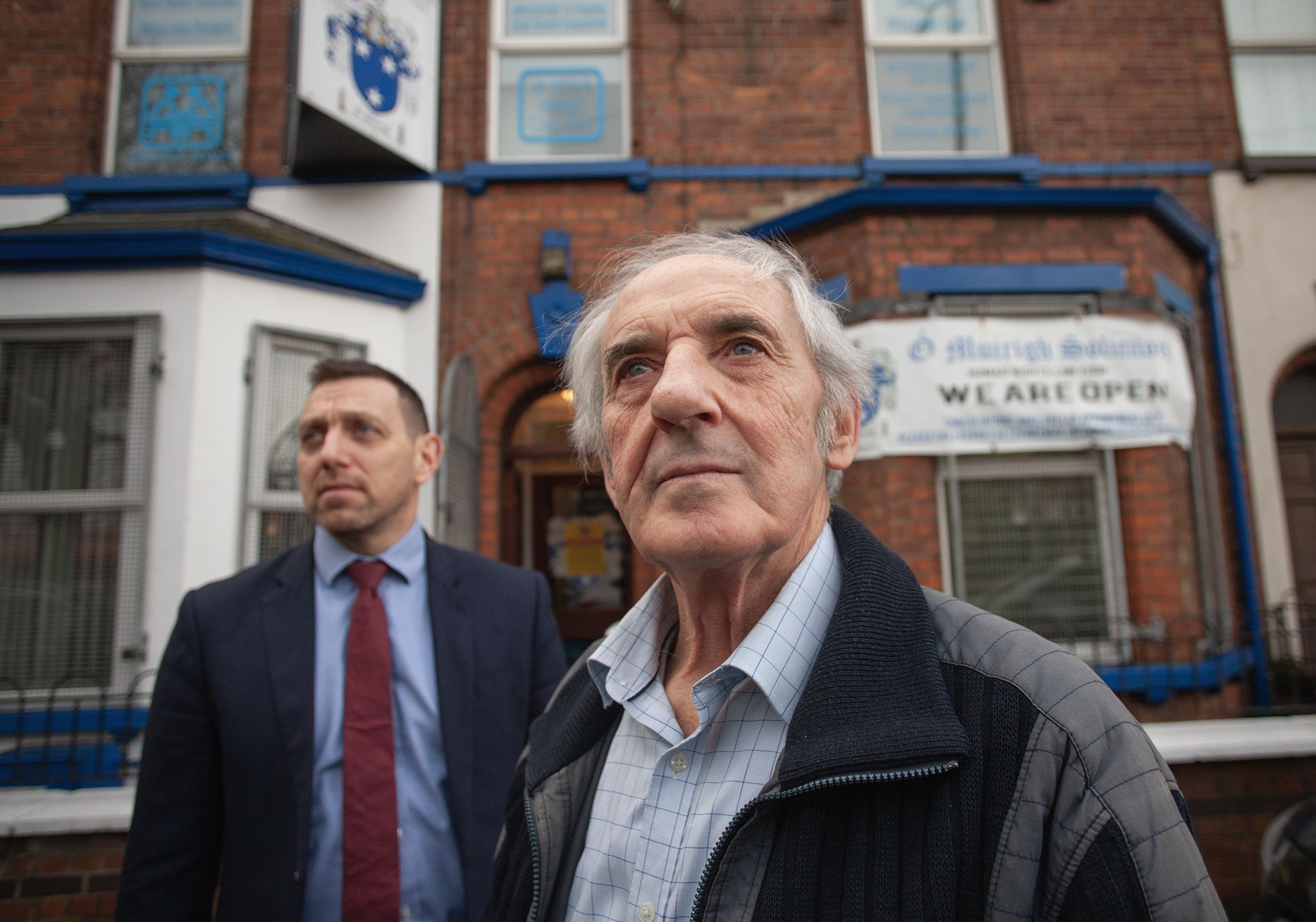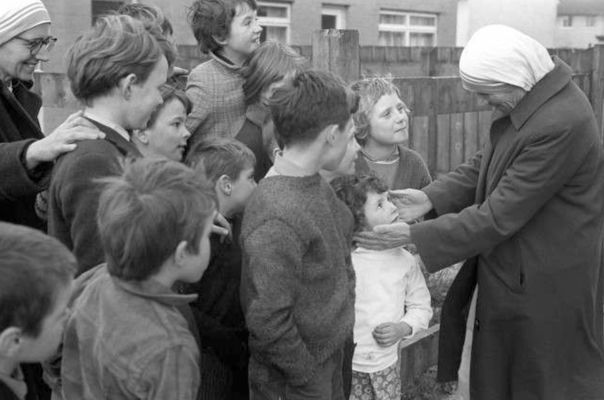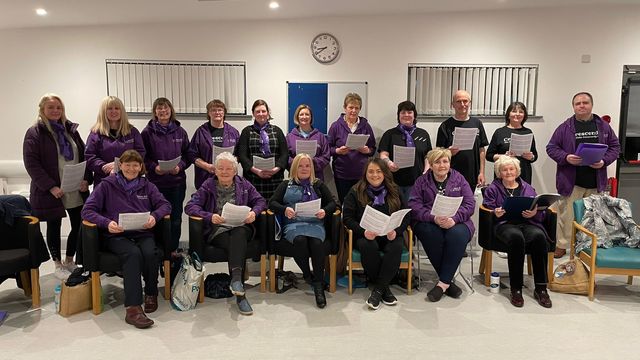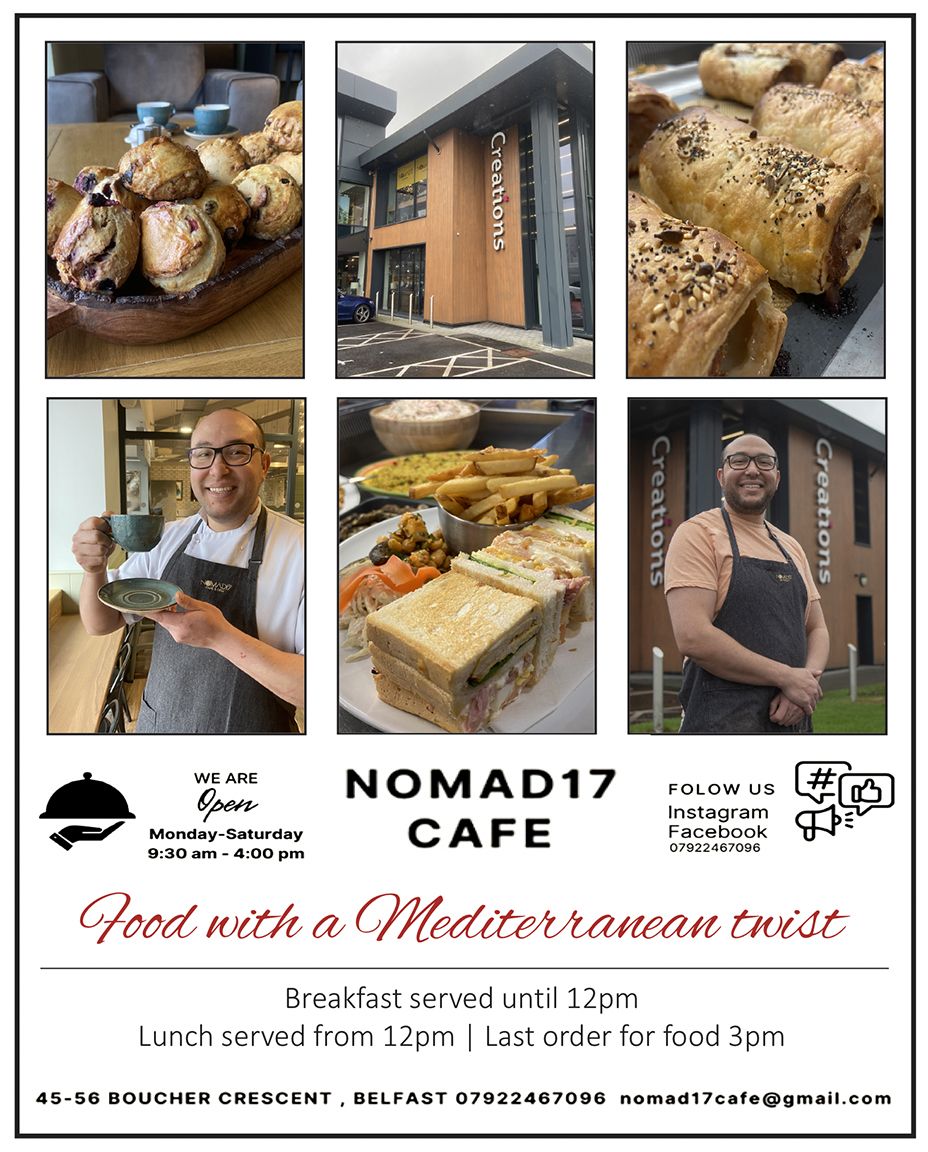TWO men who were seriously injured in the Ballymurphy Massacre have welcomed the conclusion of their civil case against the Ministry of Defence.
After the historic Ballymurphy inquest findings on the 11 May 2021, civil proceedings were issued against the MoD and Chief Constable of the PSNI for damages and loss sustained by a number of individuals who were shot and injured by the British Army's Parachute Regiment at Ballymurphy in West Belfast between the 9 and 11 August 1971.
This legal action, which had been listed for a two-day hearing on 5 January, has now concluded with a settlement on confidential terms at the High Court in Belfast in relation to injuries sustained by Bobby Clarke and Joseph Millen.
Litigation in relation to the death of John McKerr, Paddy McCarthy and the related legal proceedings of others injured at Ballymurphy is ongoing. Ten people were shot dead by the British Army's Parachute Regiment over three days, while Paddy McCarthy died of a heart attack after being confronted by soldiers.
“It is a relief to have this concluded after nearly 52 years," Joseph Millen told the Andersonstown News.
“We had an inquest after this happened around 1973 or 1974 and it was a whitewash. I was there as a witness and wasn’t allowed to speak. A Paratrooper got up and said under oath that he saw the priest with a machine gun.
“I was awarded £2,250 then and I thought that was the end of it. I was due to get married on the 4 September that year and was in hospital for 18 days after the shooting.
“A loyalist got shot and was in the bed next to me. I later read that he had been awarded £10,000. I was left wondering how loyalists were getting three or four times what Catholics were getting.”

The Ballymurphy inquest is today hearing from Joseph Millen who was injured in the Springfield Park area in August 1971. Fr Frank Mullan and teenager Frank Quinn died in the same incident pic.twitter.com/WbfU7Au3sH
— Rebecca Black (@RBlackPA) February 25, 2019
Joseph told us that after he was shot he had to learn how to walk again.
“The bullet that hit me, killed Frank Quinn,” he continued.
“Father Hugh Mullan was making his way out of the field towards a lane when he got shot. I feel guilty because there was a priest and a young lad killed.
“I had said to the young lad to go and get Father Mullan because I had been speaking to him before all of this happened and he ended up being killed.”
Bobby Clarke added that if it wasn’t for solicitor Pádraig Ó Muirigh, he would still be fighting his case.
“It will be 52 years this August and the night that I was shot, I had been evacuating children,” he said.
“When I was shot, I had no pain for three days. Father Mullan said that he would anoint me and I told him that I wasn’t going to die.
“After he anointed me he asked me to go to hospital. Father Mullan had gone to call an ambulance for me and he was shot. Almost immediately Frank Quinn was shot as he lay beside me. He was 19, married with one child and another on the way.
“That is a burden on me that those two people died helping me. Two words are like a millstone around my neck – those are what if, what if, what if.”
OUTSIDE COURT: Back row left to right, John Teggart, whose father Danny Teggart was shot dead during the Ballymurphy Massacre; Joseph Millen and solicitor Pádraig Ó Muirigh; front sitting, Bobby Clarke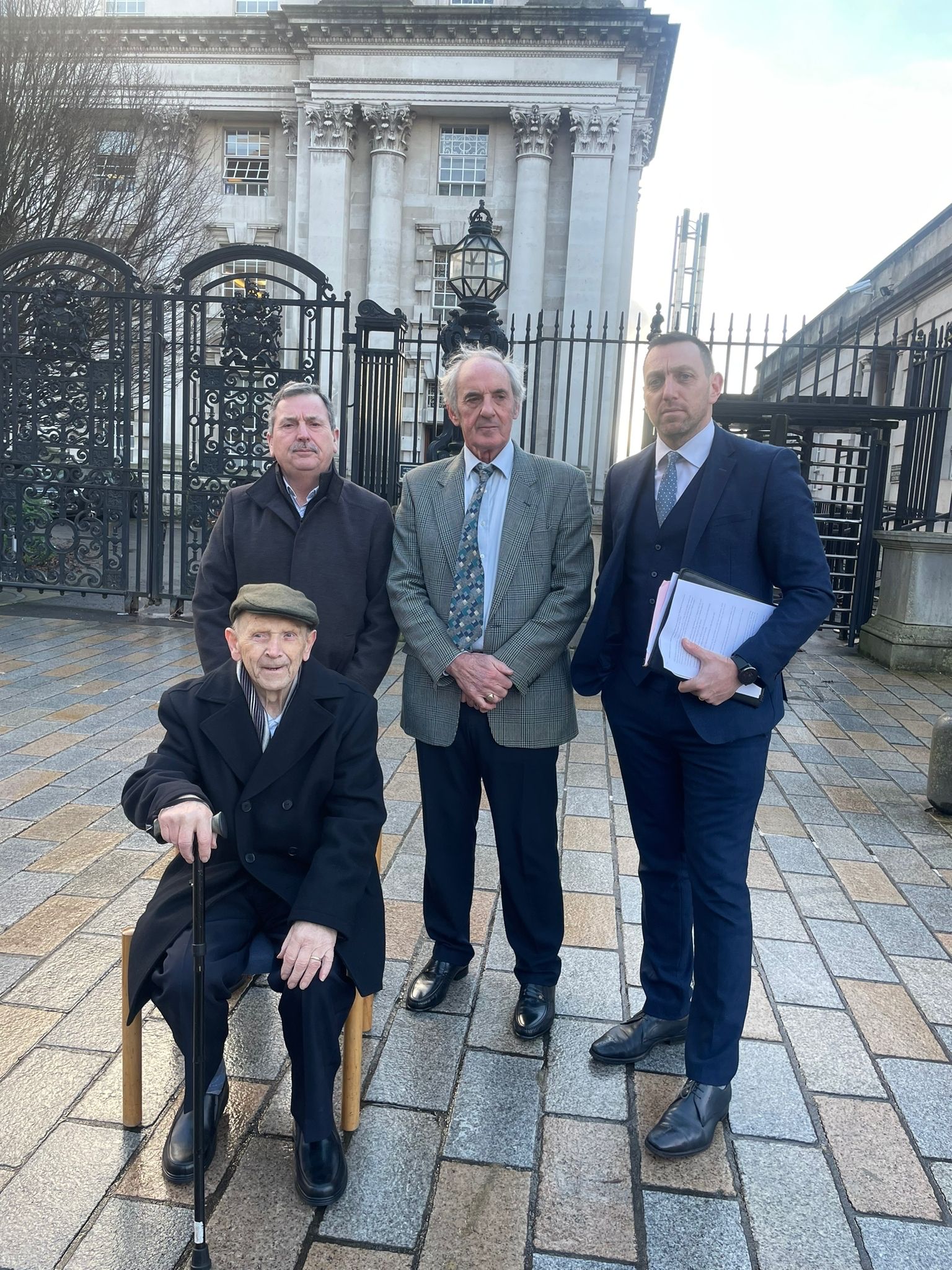
Commenting on the settlement, Pádraig Ó Muirigh of Ó Muirigh Solicitors said: “The confidential nature of the settlement prevents me disclosing the settlement figure. I can confirm, though, that the figure is significant and that our clients are satisfied with the outcome of this litigation.
“We hope to achieve satisfactory outcomes for the remaining related legal actions in the near future.
“It is crucial that cases of this nature are allowed to progress through Inquest and Civil proceedings. Rather than peddling ‘false hope’ as former British Secretary of State, Brandon Lewis, has previously claimed, these robust legal proceedings have provided much information about what happened to those families who lost loved ones and those who were left with serious injuries at the hands of the British Army, unlike the flawed RUC and Royal Military Police (RMP) investigation in 1971 and the later HET Desktop Review.”

